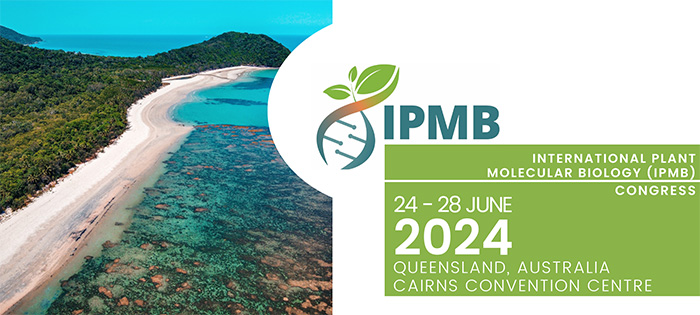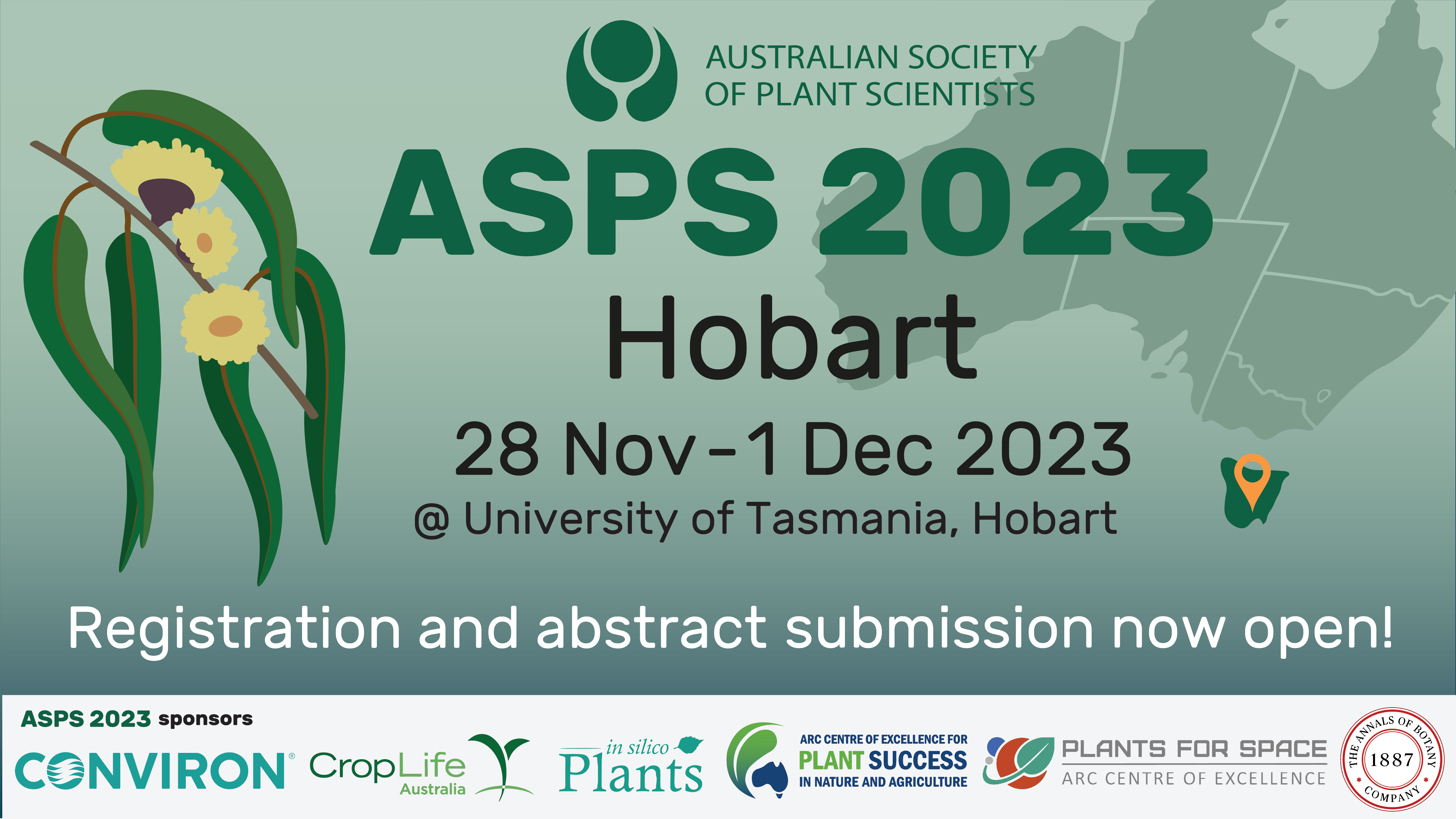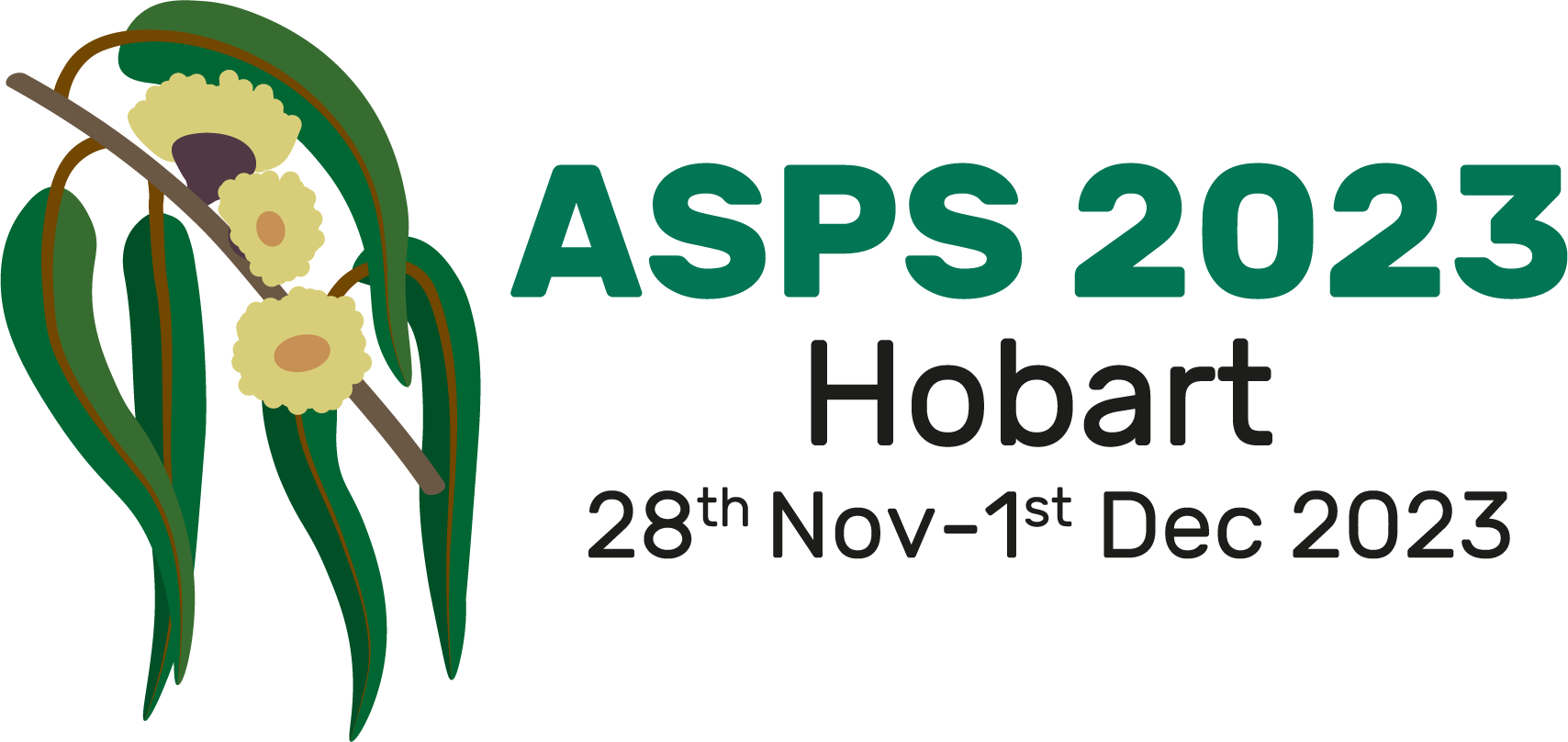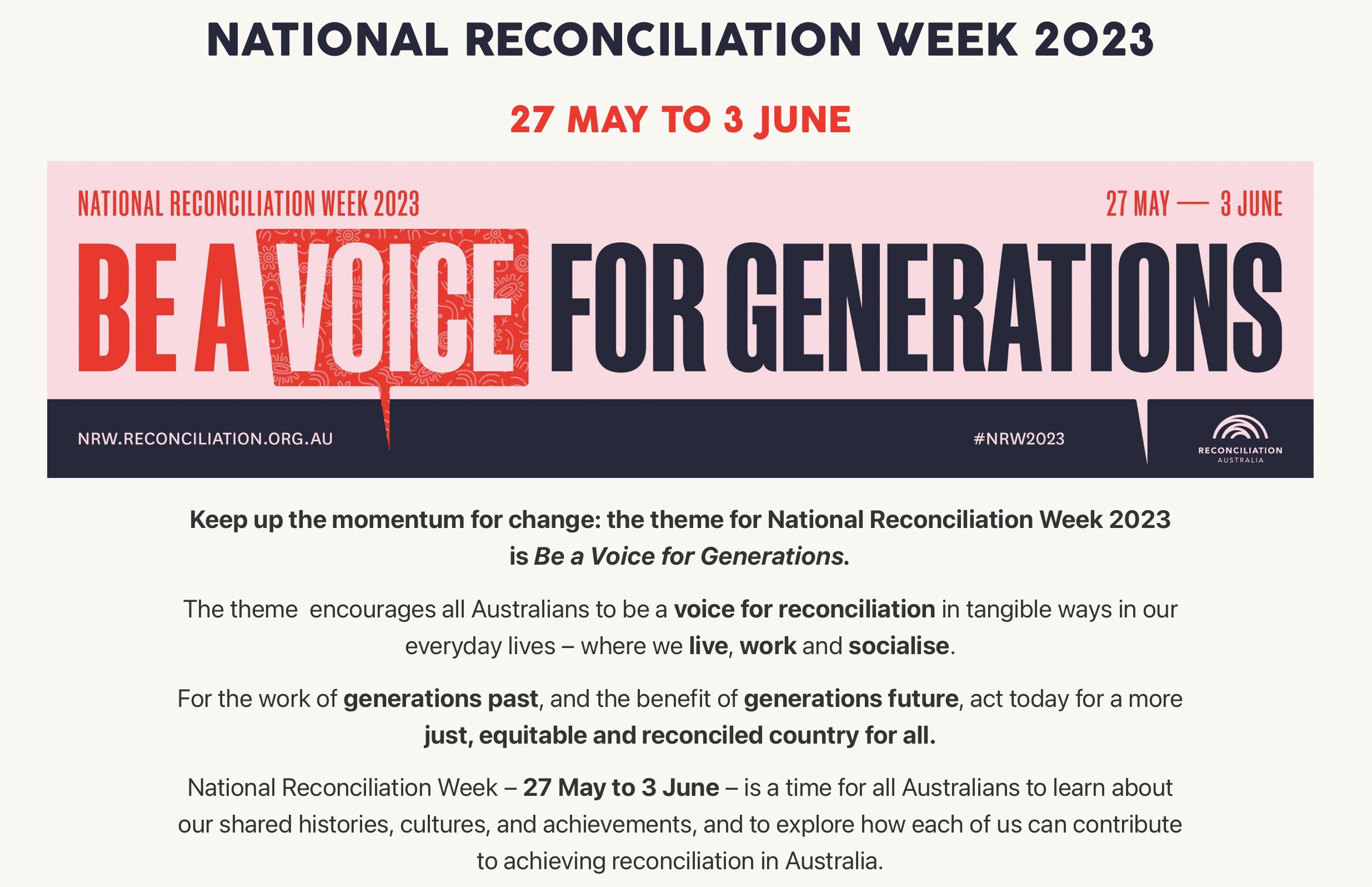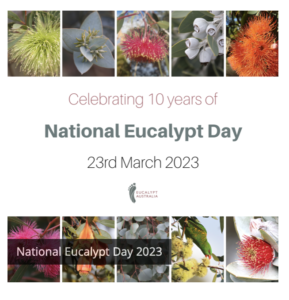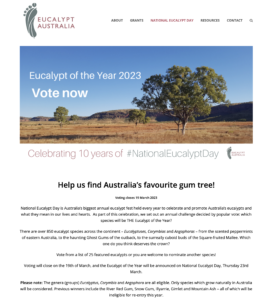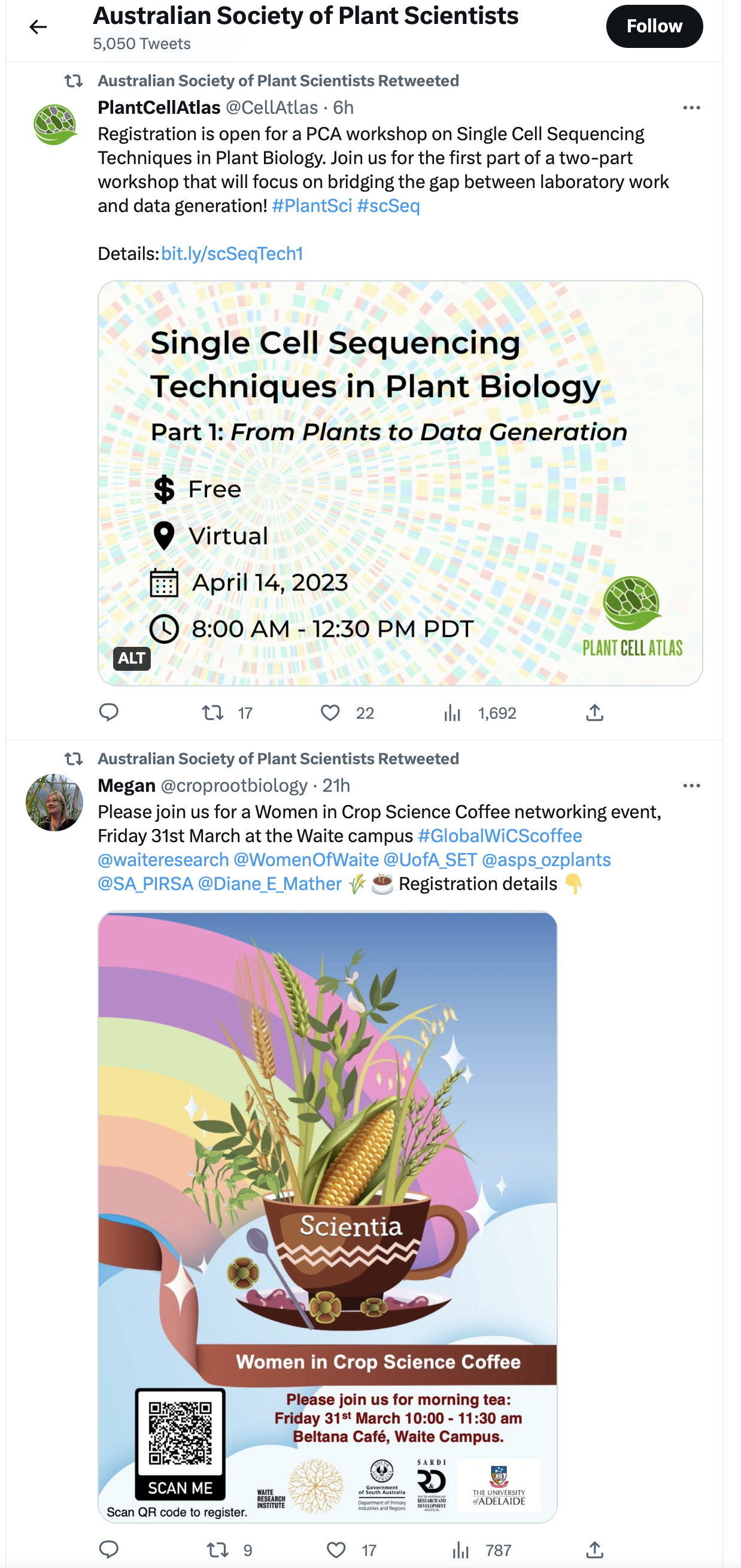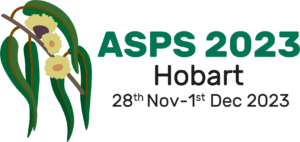- About
- Members
- Join
- Member log in
- Membership Renewal
- Member directory
- Life Members
- ASPS Life Member Professor Graham Farquhar
- ASPS Life Member Associate Professor Hendrik (Hank) Greenway
- ASPS Life Member Dr Marshall (Hal) D Hatch
- ASPS Life Member Dr Paul E Kriedmann
- ASPS Life Member Dr Mervyn Ludlow
- ASPS Life Member Emeritus Professor Rana Munns
- ASPS Life Member Conjoint Professor Christina E Offler
- ASPS Life Member Professor (Charles) Barry Osmond
- ASPS Life Member Emeritus Professor John W Patrick
- ASPS Life Member Dr Joe Wiskich
- Corresponding Members
- Elected Fellows
- Events
- Awards & Funding
- Employment
- Publications
- Research
- Teaching
- Menu
July 2023 Phytogen, reminder: ASPS2023 Student, Carers’ and Indigenous Travel applications due Friday 28th July 2023 !
25 July 2023
This is the week for you to apply for travel awards to ASPS2023. Applications close this Friday 28th July 2023 !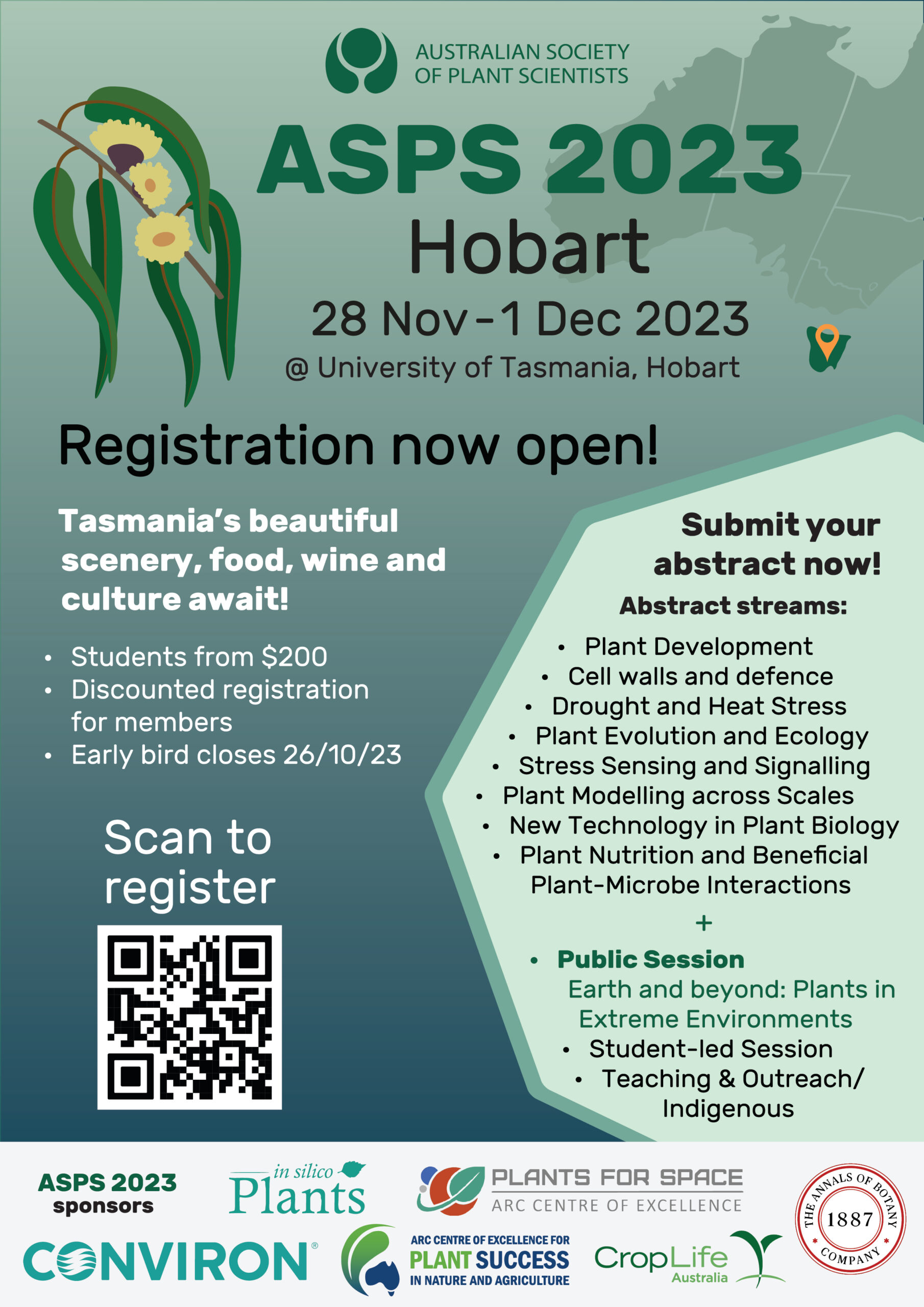
Click on the links below…..
Student conference travel awards
Carers’ support travel grant for ASPS2023 awards
Indigenous travel grant awards
Applications for all three close this Friday 28th July 2023 !
Registration is now open, register then submit your abstract.
Abstract submission
Within a day or two of registering you will receive an email from asps.hobart2023@gmail.com with abstract submission instructions (check your junk if you do not receive)
Use this abstract template SessionNumber_Surname
- Oral presentation abstracts due Tues 26th September 2023 (early bird poster abstracts also welcome)
- Poster presentations abstracts due Tues 7th November 2023
Abstract enquiries: asps23abstract@gmail.com
IPMB 2024 Registration and call for abstact submissions opens August 2023
IUBMB 2024 in Melbourne, 22nd-26th September 2024. Registration information August 2023.
Please login and check your ASPS membership is up to date. Encourage your colleagues and students to join ASPS.
Tweet to @asps_ozplants your news and upcoming events and follow on Facebook to keep up to date.
June Phytogen – Plan to attend ASPS 2023 in Hobart thisNovember.
23 June 2023
Welcome to Phytogen for June 2023. Here is a short issue to match with passing of the shortest day, the winter solstice. Now we are heading towards the end of the year, it is time to plan to attend ASPS2023 in November in Hobart.
There is still time to apply for the Jan Anderson Award with applications closing 30th June 2023.
For everyone travelling consider applying for travel awards, there are:
student conference travel awards,
carers’ support travel grant for ASPS2023 awards, and
Indigenous travel grant awards. Applications for all three of these close 28th July 2023.
Nominate a female scientist and STEM Career Pathways survey.
02 June 2023
Dear ASPS Members,
Please consider nominating a female plant scientist (or self-nominating) for the 2023 Jan Anderson Award (https://www.asps.org.au/awards). The research must have been done within 15 years of the PhD, or within 15 cumulative years of employment subsequent to the year in which the PhD thesis was submitted (excluding career breaks). The closing date for the 2023 award is now 30th June, 2023.
|
|
|
|
|
|
|
|
|
May Phytogen out now. GPC and STA newsletters
31 May 2023
Hello ASPS members,
The May edition of Phytogen is out now and can be accessed HERE.
The GPC e-bulletin can be accessed HERE for May edition, HERE for April edition.
STA newsletters can be accessed HERE
31 May 2023
Hello ASPS members,
The May edition of Phytogen is out now and can be accessed HERE.
The GPC e-bulletin can be accessed HERE for May edition, HERE for April edition.
STA newsletters can be accessed HERE
May 2023 Phytogen
28 May 2023
Welcome to Phytogen for May 2023. Soon registration will open for ASPS2023 in Tasmania in November Tuesday 28th November to Friday 1st December. Details so far are available at https://www.asps.org.au/conferences/asps-2023
To get you ready for preparing your abstacts, here are reports from poster prize winners in 2022. We hope you enjoy reading:
Alyssa Martino, PhD Candidate, School of Life and Environmental Sciences, The University of Sydney.
What is the title of your poster? 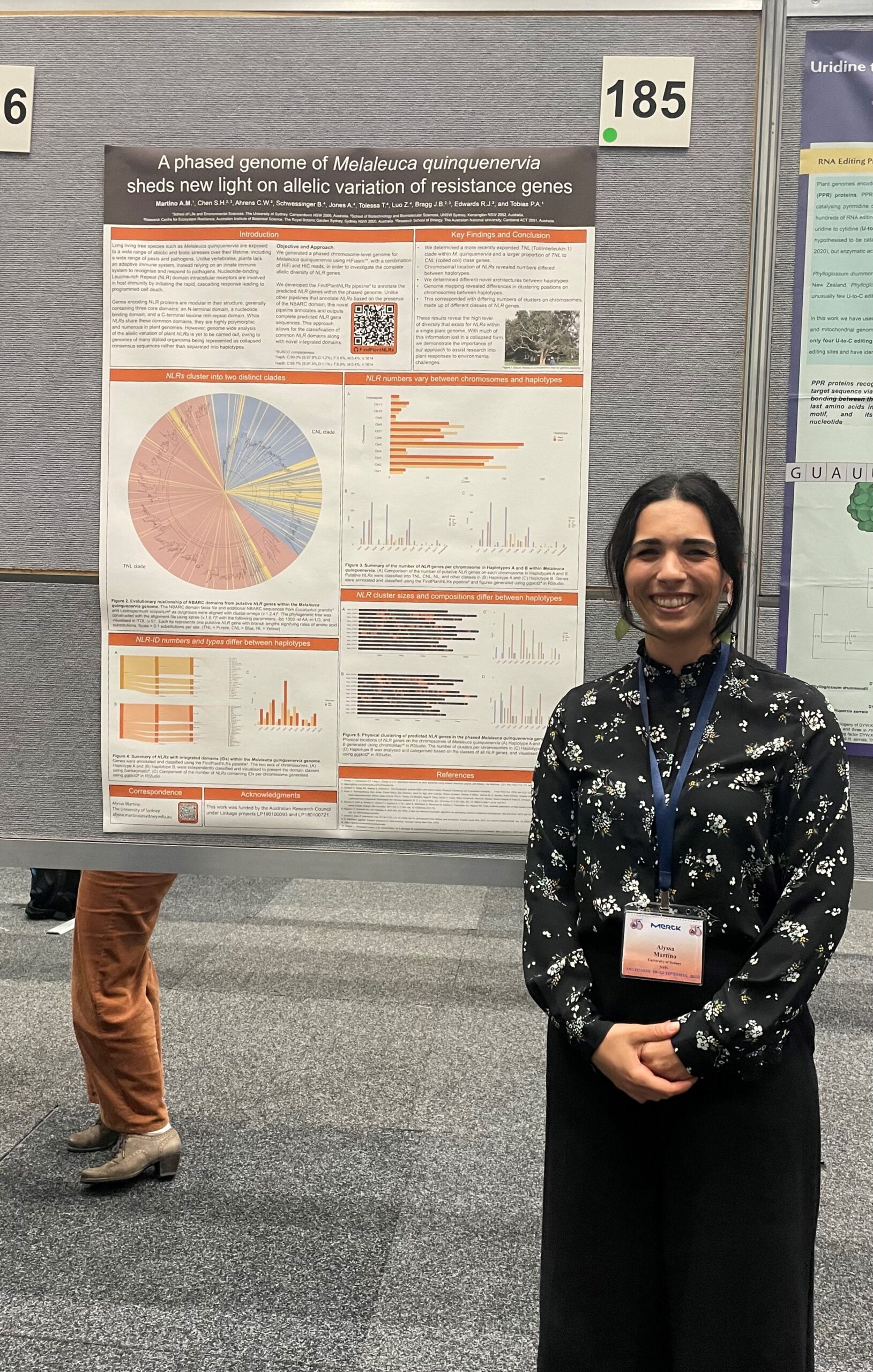
A phased genome of Melaleuca quinquenervia sheds new light on allelic variation of resistance genes
What is the aim of your research, and what is the main hypothesis that you are testing?
Long living tree species are exposed to a wide range of abiotic and biotic stresses in their lifetime, including numerous pests and pathogens. Unlike animals, they lack an adaptive immune system, instead relying on an innate immune system to recognise and respond to pathogens. Plant Nucleotide-binding Leucine-rich repeats (NLRs) are modular intracellular receptors involved in host immunity by initiating the rapid, cascading response leading to programmed cell death. Genes encoding NLRs are highly polymorphic and numerous in plant genomes. However, genome wide analysis of the allelic variation of plant NLRs is yet to be carried out, owing to genomes of many diploid organisms being presented as collapsed consensus sequences rather than separated into haplotypes. Therefore, the focus of this project was to investigate the allelic diversity of NLRs in a long-living tree species.
What plant species was the focus of your research, and what were the key techniques used?
We generated a phased chromosome-level genome for the long-living tree species Melaleuca quinquenervia (broadleaf paperbark). Using HiFiasm software with a combination of HiFi and HiC data, the genome was phased into haplotypes to investigate the complete allelic diversity of NLR genes. The FindPlantNLRs pipeline was developed to annotate the predicted NLR genes within the phased genome, including novel integrated domains.
What was the major finding(s) of your research?
Genome mapping revealed differences in the clustering position of NLRs on chromosomes between haplotypes, which corresponded with differing numbers of NLR clusters between haplotypes. Different novel domain architectures were also detected between haplotypes, demonstrating a high level of haplotype diversity of NLR genes within the M. quinquenervia genome. With much of this information lost in a collapsed form, we demonstrate the importance of our approach to assist research into plant responses to environmental challenges.
Who were the important collaborators and funders of your work?
The work was carried out in collaboration with Stephanie Chen (UNSW), Collin Ahrens (UNSW), Benjamin Schwessinger (ANU), Ashley Jones (ANU), Tamene Tolessa (ANU), Zhenyan Luo (ANU), Jason Bragg (UNSW), Richard Edwards (UWA), and Peri Tobias (USyd) and was funded by ARC Linkage projects LP190100093 and LP180100721 and Research Training Program Stipend Scholarships (Alyssa and Stephanie).
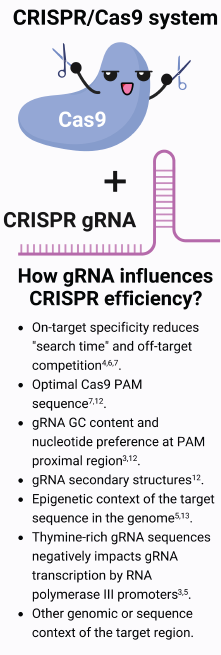
Zheng (Tommy) Gong, HDR Student, PGEL|School of Agriculture and Food Science, The University of Queensland.
What is the title of your poster?
A simple and rapid workflow to evaluate CRISPR gRNA genome editing efficiency in planta.
What is the aim of your research, and what is the main hypothesis that you are testing?
This research aims to develop a workflow that would allow researchers to easily test the efficiency of their selected CRISPR gRNA in planta targeting any sequence-of-interest.
What plant species was the focus of your research, and what were the key techniques used?
We used Nicotiana benthamiana, a model plant species, for transient expression of our CRISPR cassettes. To increase the applicability of this workflow, only general molecular biology skills were required to evaluate the efficiency of multiple gRNAs.
What was the major finding(s) of your research?
We first conceptualised the workflow to be as simple as possible with minimal molecular cloning required. Using this workflow, we successfully evaluated the efficiency of multiple gRNAs targeting an endogenous N. benthamiana gene. We found that the in planta genome editing efficiency of gRNAs was not consistent with that predicted by in silico gRNA design tools, demonstrating the importance of a workflow as such. Using this workflow, we have demonstrated and intend to in future studies, evaluate gRNAs targeting sequences in crop species and other agriculturally important plants.
Who were the important collaborators and funders of your work?
Important collaborators of this work are Yijie Wang and Genevieve Durrington who are currently PhD students at The University of Queensland and my excellent supervisors, Prof. Jimmy Botella, and Dr Karen Massel.
I am funded by the Australian Government RTP scholarship.
Nick Booth, College of Science & Engineering, Flinders University of South Australia.
Nodulin 26 is a multifunctional plant aquaporin that facilitates ammonium transport in nitrogen-fixing soybean nodules.
Booth N.1, Ramesh S.1, Jenkins C.1, Soole K.1, Tyerman S.2, and Day D.1
1College of Science & Engineering, Flinders University, GPO Box 5100, Adelaide, SA 5001, Australia.
2ARC Centre of Excellence in Plant Energy Biology, School of Agriculture, Food and Wine, University of Adelaide, Glen Osmond, South Australia 5064, Australia.
At COMBIO 2022 I was awarded an ASPS poster prize for presenting our findings on the soybean aquaporin, Nodulin 26 (NOD26). Legumes have developed a symbiotic relationship with rhizobia, a soil bacterium that fixes atmospheric nitrogen into a form usable by the plant. During the symbiosis, legumes develop highly specialised organs on their roots, called nodules, which are infected by rhizobia. Inside the infected nodule cells, the rhizobia differentiate into nitrogen-fixing bacteroids that are excluded from the plant cytosol in organelle-like structures termed symbiosomes. The symbiosome membrane acts to regulate the metabolite exchange between the symbionts. Interestingly, a non-selective cation channel which facilitates the efflux of fixed nitrogen from symbiosomes remains unidentified (Tyerman et al. 1995). We proposed that NOD26 may be this non-selective cation channel and begin to characterise the channel through two-electrode voltage clamp in Xenopus laevis oocytes, thanks to a collaboration with Stephen Tyerman, Adelaide University.
Ion transport through aquaporins has long been controversial, with Yool and colleagues (1996) first reporting this in human aquaporin 1. More recently, non-selective cation activity has been reported in Arabidopsis PIP2;1, which shares several characteristics with the soybean symbiosome membrane non-selective cation channel. Our work has shown that when NOD26, a major component of the soybean symbiosome membrane, is heterologously expressed in X. laevis oocytes, monovalent cation-induced currents are observed. The channel is permeable to ammonium, methylammonium, potassium and sodium but not choline or anions, and that these currents are inhibited by divalent cations. Through phosphomimetics of S262, we identified a switch in the permeability of NOD26 to water or cations when expressed in X. laevis oocytes (Figure 1). We believe that the soybean aquaporin NOD26 is multifunctional channel that facilitates both ammonia and ammonium transport in nitrogen-fixing nodules and that this transport is regulated by phosphorylation of S262.
 Figure 1. Mutations to GmNOD26 alter water and cation permeability. (A) Osmotic water permeability; or (B) Na+ induced clamp currents; of control, Phosphomimetics or Wt GmNOD26-expressing X. laevis oocytes (n = 8).
Figure 1. Mutations to GmNOD26 alter water and cation permeability. (A) Osmotic water permeability; or (B) Na+ induced clamp currents; of control, Phosphomimetics or Wt GmNOD26-expressing X. laevis oocytes (n = 8).
References:
Byrt, C., Zhao, M., Kourghi, M., Bose, J., Henderson, S., Qiu, J., Gilliham, M., Schultz, C., Schwarz, M., Ramesh, S., Yool, A., and Tyerman, S. (2017) Non-selective cation channel activity of aquaporin AtPIP2;1 regulated by Ca2+ and pH. Plant, Cell & Environment, 40:802– 815.
Tyerman, S., Whitehead, L., and Day, D. (1995). A channel-like transporter for NH4+ on the symbiotic interface of N2-fixing plants. Nature, 378:629–632.
Yool, A., Stamer, W., and Regan, J. (1996). Forskolin stimulation of water and cation permeability in aquaporin-1 water channels. Science, 273:1216–1218.
Miss Yuhan Liu, Ph.D. candidate | Wonder of Science Young Science Ambassador, School of Agriculture & Food Sciences | Integrative Legume Research Group, Faculty of Science | The University of Queensland.
What is the title of your poster?
Root meristem growth factor peptides and their effects on root development and nodulation in soybean
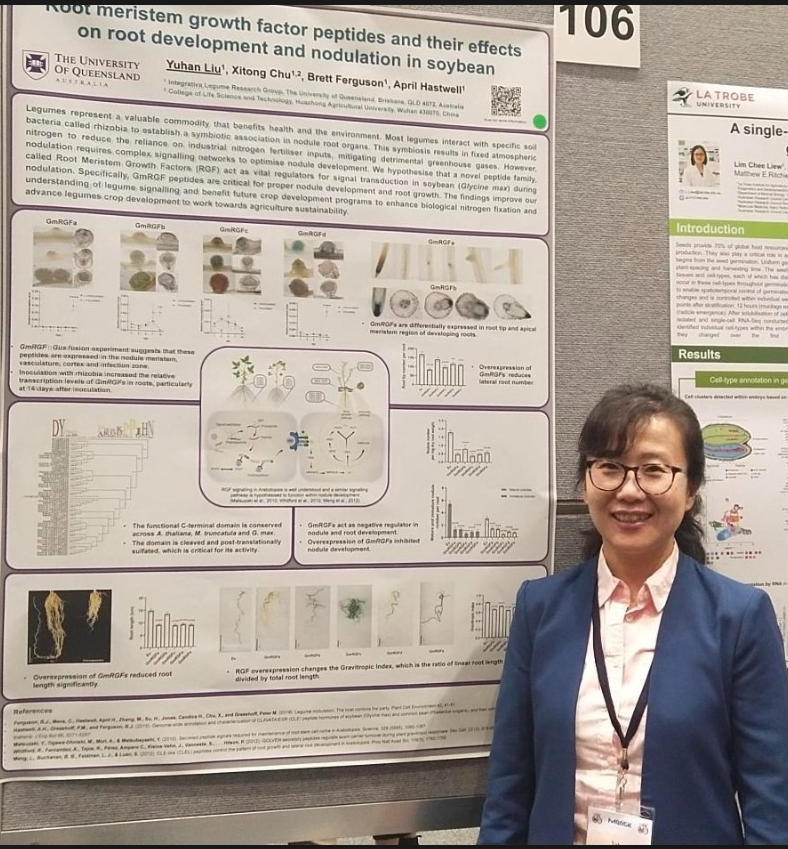
What is the aim of your research, and what is the main hypothesis that you are testing?
The research aims to understand the role of a new peptide family, RGFs, in legume growth. Given its orthologous to Arabidopsis and Medicago peptides regulating meristem activity and immune response, we hypothesized that these RGF peptides affect root growth and nodule development in soybean.
What plant species was the focus of your research, and what were the key techniques used?
Soybean (Glycine max). A range of molecular and physiological techniques were used to characterise gene function, including Agrobacterium-mediated Hairy Root transformation, gene overexpression, promotor::GUS fusions, microscopy, bioinformatics and phenotypic analyses.
What was the major finding(s) of your research?
A number of GmRGFs are specifically expressed in soybean nodules and root tips. They are critical for nodule maturation.
Who were the important collaborators and funders of your work?
Members of the Integrative Legume Research Group, the University of Queensland were important to help carry out this research project. Xitong Chu from The University of Queensland and Huazhong Agricultural University. Funding for April Hastwell and Brett Ferguson is provided by the Australian Research Council (ARC; DE200100800 and DP190102996). Yuhan Liu is supported by a University of Queensland Earmarked Scholarship, a UQ School of Agriculture and Food Sciences Travel Award and a ASPS Student Travel Award.
March Phytogen and STA newsletter. NZ PhD opportunity.
26 March 2023
Hello ASPS members,
The March issue of Phytogen is out now and can be accessed HERE.
The current STA newsletter can be access HERE.
There in an opportunity for a NZ PhD on our job board which can be accessed HERE.
Keep updated with the latest developments for our national conference ASPS 2023 in Hobart this Nov HERE.
March 2023 Phytogen
17 March 2023
Welcome to Phytogen for March 2023. There is a lot going on the next few months. Most importantly………
ASPS Awards are Open !!!
ASPS award applications are now open. Details and links to each award are below.
-
-
- Peter Goldacre Award, applications due 31 March 2023
- Jan Anderson Award, applications due 31 March 2023
- R.N.Robertson Travelling Fellowship, applications due 31 March 2023
- ASPS Education and Outreach Award, applications due 28 April 2023
- Student Conference Travel Award, applications due 2 June 2023
- ASPS Carers’ Support Travel Grant, applications due 2 June 2023
- Indigenous Travel Grants, applications due 2 June 2023
-
Now onto other events…………..
International Fascination of Plants Day is held on 18th May each year with events encouraged to be held in even years. Here is a link to events in 2022 and there is plenty of time for Australia to plan events in 2024. On the occasion of the Fascination of Plants Day (FoPD) 2022, national funders in the European Research Area Network on Sustainable Crop Production (SusCrop ERA-net) opened the video contest on ‘what sustainable crop production means to you?’
Information is available at the SusCrop video contest webpage The SusCrop/FoPD video contest will close on 26th May 2023. Video submission has to be done via WeTransfer to nikki.declercq@ilvo.vlaanderen.be AND to eline.dewispelaere@ilvo.vlaanderen.be
23rd of March is National Eucalypt Day. Get your votes in by 19th March for Eucalypt of the year and there are plenty of events.
ASPS have an upcoming webinar about respiration 6th April 2023 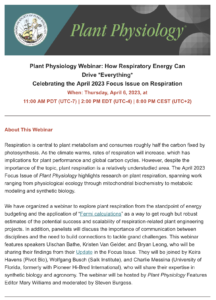
Lots of events on our twitter, @asps_ozplants……
Sessions are taking shape for ASPS2023 in Hobart……….
Please login and check your ASPS membership is up to date. Encourage your colleagues and students to join ASPS.Tweet to @asps_ozplants your news and upcoming events and follow to keep up to date.
Phytogen February issue out now.
20 February 2023
Phytogen February 2023
17 February 2023
Welcome to Phytogen for February 2023.
Introducing Professor Martha Ludwig
This year we have a new President, Martha Ludwig from the University of Western Australia. Hope you enjoy reading about her journey so far.
Winds of Change
Martha went to Smith College, Northampton, Massachusetts, completing a BA in Biological Sciences. The college is a private liberal arts, all-women’s college (https://www.smith.edu/about-smith). Degrees are four years and in addition to taking maths, chemistry, physics, and biology, Martha also took units in English literature, history, philosophy, Greek and Roman mythology, and German. The President of Smith College at the time (1980s) was Professor Jill Ker Conway, the first woman President, who had grown up in the Australian outback (https://en.wikipedia.org/wiki/Jill_Ker_Conway). Professor Conway wrote the famous memoir The Road from Coorain. Coorain is an Aboriginal word that means “windy place”.
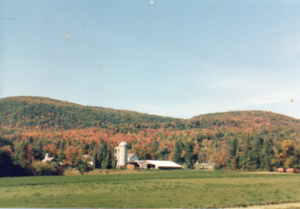
Figure 1. The Ludwig Family Farm in Vermont, USA (autumn, c1985).
Before college, Martha, like Jill, grew up on a farm. The family dairy farm (Fig. 1) was in rural Vermont where she kept busy milking cows, doing field work, tending the veggie garden, picking blueberries from 500 bushes, and working in her grandparents’ apple orchard.
Martha always enjoyed being outside in the warmer months, working with plants and watching them grow. Once in high school she became fascinated with microscopes.
After college, Martha did her PhD at McGill University, Montréal, Canada, in the lab of Prof Sarah P Gibbs. She focused on the eukaryotic endosymbiotic origin of some algal chloroplasts. At the time, the prokaryotic endosymbiotic origin of chloroplasts limited by two membranes had been accepted, e.g., a cyanobacterium was engulfed by a colourless eukaryotic host cell. However, some algal chloroplasts are surrounded by four membranes and in two groups, the cryptomonads and the chlororachniophytes, an organelle called the nucleomorph, which was postulated to be the vestigial nucleus of the endosymbiont, is present between the outer and inner pairs of membranes. Martha showed using microscopy and DAPI staining that the nucleomorphs of both cryptomonads [8] and the chlororachniophytes [9] contain DNA. Nucleomorph genomes have since been sequenced by other groups and the eukaryotic endosymbiotic origin of some chloroplasts is now in biology textbooks. Martha also developed techniques in immunocytochemistry to localise pigment-proteins in the lumen of cryptomonad thylakoids during her PhD [10]. 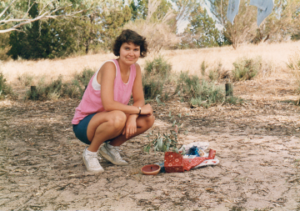
Figure 2. Martha’s first Aussie Christmas. Lake Hattah, Victoria (1989).
Having had enough of long winters, Martha came to Australia for science, sun, and adventure. She held several postdoctoral research positions, initially at the University of Melbourne, where she continued to work with unicellular algae in the labs of Rick Wetherbee and Jeremy Pickett-Heaps. It was a steep learning curve to learn the taxonomy and ultrastructure of the red and brown algae, diatoms, etc. Martha worked on the golden-brown algae, the chrysophytes, and the cryptomonads. These algae have cell coverings or scales that can contribute to marine biofouling; however, little was known about their biology. Along with PhD students in the lab, Martha developed monoclonal antibodies against proteins associated with the cell coverings, which allowed, through immunolabelling, the developmental and deployment pathways of the cell surface components to be worked out [7; 12; 15]. While in Melbourne, Martha fell in love with Australia; the Melbourne trams, friendly people, bushwalking, remote regions, and the better weather; yes, you read correctly, Melbourne weather is better than that in New England and Montréal (Fig. 2)!
An ARC Postdoctoral Fellowship (the predecessor to the DECRA scheme) at Queensland University of Technology in the lab of Jim Burnell involved a switch to land plants and development of a molecular biology toolbox – another steep learning curve! It was in the Burnell lab that Martha began her ongoing work with Flaveria, a genus of plants in the family Asteraceae with C3, C4 and C3-C4 photosynthetic intermediate species. This genus is a model group to look at the evolution of C4 photosynthesis and her work focussed on the molecular evolution of the C4-associated form of the enzyme carbonic anhydrase (CA), which catalyses the first step of the C4 pathway (Figure 3) [11]. Brisbane is where Martha learned to live outside all year round and, with members of the Burnell lab and others in the QUT Centre for Molecular Biology, did more bushwalking and travelling to and in the regions of Queensland (Figure 4).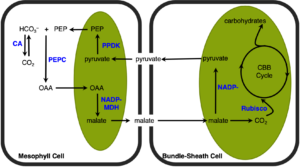
Figure 3. The C4 photosynthetic pathway used by Flaveria and Neurachne species. CA, carbonic anhydrase; CBB, Calvin, Benson, Bassham; NADP-MDH, NADP-malate dehydrogenase; NADP-ME, NADP-malic enzyme; PEP, phosphoenolpyruvate; PEPC, phosphoenolpyruvate carboxylase; PPDK, pyruvate phosphate dikinase; Rubisco, ribulose-1,5-bisphosphate carboxylase/oxygenase.
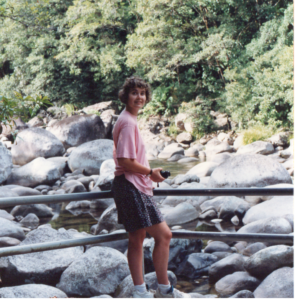
Figure 4. Bushwalking in Mosman Gorge, Daintree National Park, Queensland (c1994).
Experience in the Burnell lab and a third post doc position at the Australian National University, working with Murray Badger, Dean Price, and Susanne von Caemmerer, opened opportunities to interact with Hal Hatch, the discoverer of the C4 photosynthetic pathway, and his group at the CSIRO in Canberra. At the ANU, Martha continued to work with Flaveria and CA [13; 19], but also examined the components of the CO2 concentrating mechanism of cyanobacteria [14; 16] and added transgenic technology to her molecular toolbox. At the ANU, Martha became a member of ASPS and was the Genetics and Molecular Biology Discipline Representative. In addition to the fantastic science community, Canberra also was the gateway to the NSW coast, the mountains, more bushwalking, and Sydney to watch the cricket!
At Macquarie University in Sydney, Martha had her first continuing position and relished in coordinating and teaching a unit on the evolution of land plants as well as teaching into other plant biology and biochemistry units (Figure 5). There were further experiments with the von Caemmerer lab and Bob Furbank (CSIRO) working with transgenic Flaveria in which the activity of the C4-associated form of CA was greatly reduced. The results of this work illustrated the importance of the enzyme for proper functioning of the C4 CO2 concentrating mechanism [20]. Experiments with Flaveria showing the loss of the sequence encoding the transit peptide from the ancestral C3 chloroplast CA orthologue was responsible for the evolution of the cytosolic C4-associated enzyme were initiated at Macquarie. These definitive experiments were done by excellent Honours and PhD students [17, 18].
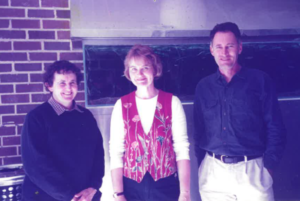
Figure 5. The plant cell, molecular biology, and physiology teaching team at Macquarie University (1999-2003). Alison Downing, Martha, Brian Atwell. Not pictured, Malcolm Reed.
Martha moved to the University of Western Australia in 2003 and continues to work on the molecular evolution of C4 photosynthesis. Like Brisbane, Perth is conducive to living outside regardless of the season. While writing an ARC grant application to further her work on Flaveria, she remembered having read about work done by Paul Hattersley in the 1980s on Neurachne, a group of Australian endemic grasses that have C3, C4 and C3-C4 photosynthetic intermediate species. She now has all species of the Neurachne growing in the UWA glasshouses and has led international teams in the reconstruction of a robust phylogeny of the genus [3] and identification of key steps in the molecular evolution of C4photosynthesis in the group [6]. Of course, Neurachne CA is a focus with the evolutionary mechanism of the C4-associated CA showing similarities to that of the Flaveria enzyme [4]! There have been many fieldtrips to the arid and semi-arid regions of Western Australia, Northern Territory, and Queensland to collect the different Neurachne species, with several trips involving the expert Paul Hattersley (now retired)! Terry Macfarlane from the WA Herbarium and Department of Biodiversity, Conservation and Attractions, who worked with Paul in the 1980s, is Martha’s extraordinary collecting buddy (Fig. 6). Travelling to the remote regions to collect the plants is a highlight of Martha’s research, fuelling her love of being outside, and opening a new world, as previously she was a lab-based plant scientist. ExaminingNeurachne spp. emphasises the importance of biodiversity in our environment and like all good science, it never ends, with analyses of leaf transcriptome data now underway to understand more globally the molecular evolution of C4photosynthesis in this monocot group. Work with Flaveria has continued, including the regulation of the C4-associated CA with Peter Westhoff’s group at the Henrich-Heine University, Düsseldorf [5] and comparisons of metabolic profiles of the C3, C4 and C3-C4 intermediate Flaveria species in collaboration with Mark Stitt and John Lunn at the Max Planck Institute of Molecular Plant Physiology [1, 2]. Martha has remained involved in the ASPS as Whole Plant Discipline Representative (2004-2005) and the ASPS Honourable Secretary (2014-2016).
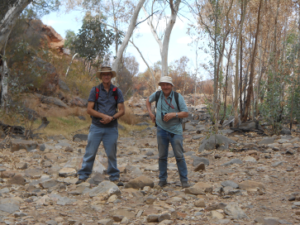
Figure 6. Terry Macfarlane and Paul Hattersley on a Neurachne collecting trip in the Northern Territory (2019).
After three years as Head of the School of Molecular Sciences at UWA, Martha is looking forward to 2023 and returning to the bench to focus on the regulation of Neurachne and Flaveria CAs, other aspects of C4 evolution in the two groups, and a sabbatical when she will work with collaborators in Portugal, Germany, and the US – of course timed for the Northern Hemisphere summer – three summers in a row – hurrah!
Plans for being ASPS President
Martha is looking forward to being President of the Society. She likes getting together as plant scientists and wants to make it easy for students and researchers to attend meetings, exchange ideas, and form networks and collaborations. One of the traits she “inherited” from Sally Gibbs, her PhD supervisor, is the conviction that students be given chances to present their work at meetings and gain confidence in being part of the scientific community. As President she aims to increase the involvement of early- and mid-career researchers in the ASPS and welcomes ideas from the membership on how to achieve this aim. Talks are also underway to strengthen ties with the NZ Society of Plant Biologists.
References:
-
-
- Arrivault, S., et al. (2019) J. Exp. Bot. 70: 1843-1858.
- Borghi, G.L., et al. (2022) J Exp Bot 73: 1581-1601.
- Christin, PA., et al. (2012) J. Exp. Bot. 63: 6297–6308.
- Clayton, H., et al. (2017) Plant Physiol. 173: 1648-1658.
- Gowik, U., et al. (2016) J. Exp. Bot. 68: 311–320.
- Khoshravesh, R. et al. (2020) Plant Physiol. 182: 566-583.
- Koutoulis, A. et al. (1993) J. Cell Sci. 104: 391–398.
- Ludwig, M., Gibbs, S.P. (1985) Protoplasma 127: 9–20.
- Ludwig, M., Gibbs, S.P. (1989) J. Phycol. 25: 385–394.
- Ludwig, M., Gibbs, S.P. (1989) J. Cell Biol. 108: 875–884.
- Ludwig, M., Burnell, J.N. (1995) Plant Mol. Biol. 29: 353–365.
- Ludwig, M. et al. (1996) Planta 199: 219–228.
- Ludwig, M. et al. (1998) Plant Physiol. 117: 1071–1081.
- Ludwig, M. et al. (2000) J. Phycol. 36: 1109–1118.
- Perasso, L. et al. (1997) Protoplasma 200: 186–197.
- Sültemeyer, D. et al. (1997) Aust. J. Plant Physiol. 24: 317–327.
- Tanz, S.K. et al. (2009) Plant Physiol. 150: 1515–1529.
- Tetu, S.G. et al. (2007) Plant Physiol. 144: 1316–1327.
- von Caemmerer, S. et al. (1997) Aust. J. Plant Physiol. 24: 487–494.
- von Caemmerer, S. et al. Plant, Cell Environ. 27: 697–703.
-
Reflection from Past President Dr Peter Ryan
Our Past President Peter Ryan also has a reflection for us:
“Learned societies for a better society: The case for joining ASPS”
I have been asked to reflect on my time as President of ASPS over the last two years. Rather than list our challenges, achievements and “might-have-beens”, I would like, instead, to address a broader set of questions which I have heard repeatedly during my Presidency: Is there any value in joining a scientific society today? Are the benefits worth the annual subscription fee? Is there more to being a member of ASPS than receiving newsletters and adding a line to our CV? I firmly believe the answers to these are yes, yes and yes. More than that, I’m convinced that the role of scientific societies has never been more important – not just for their own members but for society in general.
When I joined the Australian Society of Plant Physiologists (ASPP) in the 1980s, the annual meetings were held on university campuses often with low-priced accommodation in student colleges. They were cheap and cheerful affairs with scotch finger biscuits for morning tea, cheese and pickle sandwiches for lunch and Nescafe coffee. A single stream of presentations meant that everyone heard all talks on every topic. There was plenty of time for discussions. Overlapping interests were discovered, spontaneous mentoring occurred and collaborations were forged. The Society was active and healthy and chugged along nicely, providing important support for our plant scientists.
With time, things changed and evolved, as they always do. Indeed, biology itself was undergoing its own revolution. ASPP was renamed the Australian Society of Plant Scientists (ASPS) to encompass the broader range of topics our members were investigating; especially the burgeoning area of molecular biology. Furthermore, ASPS was invited to join other biological societies to organise larger annual meetings known as ComBio. The benefits of such meetings included the broader range of topics presented in both plant and animal research and the ability to invite and support high-profile researchers from overseas.
ComBio meetings regularly attracted 800 participants or more and scheduled many parallel sessions. They were big and busy and very exciting to younger researchers. However, these meetings proved to be considerably more expensive to attend and their scale and breadth alienated some members. Many decided that their precious travel budget was best served attending smaller meetings that focused on their specific research area.
For this and other reasons no doubt, the membership of ASPS began to fall. Other societies in Australia and overseas reported the same trend. This steady decline was disappointing for ASPS and presented a major headache for its leadership because a dwindling subscription base limited their activities, especially the capacity to hold meetings and support student travel.
It was not just students that were deciding not to join. Early-career researchers (ECRs) were leaving as well, perhaps because they were preoccupied with their own challenges during the early 2000s. We knew anecdotally at the time, and then more formally from a survey1 conducted by Science and Technology Australia (STA), that the morale among Australian scientists and STEM professionals was alarmingly low, with job security a major factor. Chasing short-term grants and relying on the creativity of academic bosses to extend contracts left many ECRs disillusioned with their chosen careers. Many considered leaving science research and some did.
Strategies were devised to reverse the declining membership but nothing much worked – at least not until two things happened. The first of these was a vote by ASPS to change the structure of their annual meetings. It was decided that the annual meetings would alternate between ComBio-style meetings, and smaller ASPS-only meetings. This was a gamble since no-one was really certain just how popular a smaller traditional meeting would be. The test for this strategy came with the first ASPS-only meeting at La Trobe University in 2019. It proved to be highly successful and demonstrated that the old model could still attract a crowd, boost membership and be profitable to boot.
The second factor that reversed the decline in membership, oddly enough, was Covid. It turns out that a couple of years of home isolation doing literature searches and anxiously waiting for laboratory access to resume, motivated many to grasp every opportunity to rub shoulders with colleagues again. We know this because the first ASPS-only hybrid-style meeting held after Covid restrictions were relaxed in 2021 was another great success and a welcome fillip to membership. The pent-up enthusiasm for local face-to-face meetings was still apparent at ComBio2022.
So back to the beginning: What are the benefits of ASPS membership? For students and early career researchers they are clear but they extend to senior scientists as well. There are the material benefits – such as the generous travel support for students and the awards and recognition of research excellence. In addition, ASPS offers a community of like-minded people with similar goals and the opportunity to present and share research in a non-discriminatory, nurturing environment. It fosters formal and informal mentoring and enables cross-disciplinary connections and collaborations. ECRs and senior members can advise and support one another as they negotiate the difficulties of their demanding careers. They are also encouraged to join leadership teams or participate in the STA run Science Meets Parliament which provide insights into science policy and governance in Australia and beyond. Members can also extend their networks by representing ASPS on national and international science bodies such as STA or the Global Plant Council. The value of all these opportunities became more obvious when they were suddenly restricted or denied us by Covid. Although success of the post-Covid meetings were aided by other international meetings being on-line only or cancelled, it highlights the value of maintaining active local societies to fall back on.
However, scientific societies like ASPS have an even more crucial role this century – not for their members but for society. Science is experiencing a crisis of trust and credibility. It should be a concern to us all that in public debates around the world scientific information is rejected out of hand and replaced by half-truths, opinions and falsehoods. Remember the claims that Covid was a fake story concocted by scientists to attract more research funds? Or do you recall an ex-Prime Minister raising doubts about climate change2 because he had seen photographs of Manly Beach over many decades and not noticed any changes to the water level? Apart from being demonstrably untrue3 they would be laughable if they were not so serious. The world is confronted with an unprecedented list of challenges and for us to have any chance of meeting and overcoming them, our leaders need to make decisions based on the best, most reliable information available. Therefore, all claims of “fake news” and “alternative facts” need to be openly tested so we don’t slide into a nightmare scenario where no-one is sure what or real and what is fantasy. The loudest message cannot be the only criterion for what is truth. As informed and scientifically-literate members of society we should participate in these debates with our friends, with our families and with our societies. We should ensure that all contentious claims be backed by legitimate and independent sources so everyone is clear what is fact and what is fiction.
Individuals can be a voice in the storm but their impact will be minimal if no-one hears them. Scientific societies that present the collective opinion of scores of experts provide a more persuasive channel for expressing views to larger audiences than do individuals. I hope and trust that science institutions around the world, will continue to engage in these debates so that we can be better prepared for the challenges ahead. So, yes, there are many compelling reasons to join ASPS and other scientific societies.
Dr Peter Ryan
ASPS President 2020-2022
(1) https://scienceandtechnologyaustralia.org.au/under-severe-strain-a-stark-snapshot-of-scientists/
(2) https://www.abc.net.au/news/2017-10-10/tony-abbott-climate-claims-dont-add-up/9034204
(3) https://climate.nasa.gov/news/2626/evidence-of-sea-level-fingerprints/
Save the Date
Here is your save the date for ASPS 2023!!!
Please add yourself to our conference mailing list and help us during the planning stages by filling out our ASPS2023 EOI form: https://forms.gle/osUAvNEyn9jcwtw78
Please share widely with your colleagues and students.
ASPS Awards are Open !!!
ASPS award applications are now open. Details and links to each award are below.
-
-
- Peter Goldacre Award, applications due 31 March 2023
- Jan Anderson Award, applications due 31 March 2023
- R.N.Robertson Travelling Fellowship, applications due 31 March 2023
- ASPS Education and Outreach Award, applications due 28 April 2023
- Student Conference Travel Award, applications due 2 June 2023
- ASPS Carers’ Support Travel Grant, applications due 2 June 2023
- Indigenous Travel Grants, applications due 2 June 2023
-
Reports from our past award winners
To give you inspiration to submit applications for ASPS awards here are reports from Nattiwong Pankasem who received a Robertson Travelling Fellowship and Maria Ermakova who received the Peter Goldacre Award in 2022. We hope you will get your skates on and submit applications.
Nattiwong Pankasem, Ph.D. student, Department of Cell and Developmental Biology, School of Biological Sciences, University of California San Diego, CA, USA.
I am Nattiwong Pankasem, a Ph.D. student in Julian Schroeder’s lab at the School of Biological Sciences at the University of California San Diego. I am interested in the plant physiological responses to environmental stimuli. I am using genetic and biochemical approaches to investigate guard cell sensing and signaling to climate change-linked stresses. Pursuing interdisciplinary research on linking genes and the environmental response has been motivating but challenging at the same time. I think it would be great opportunity to learn those environmental biophysical concepts and techniques from experts in the field. With my supervisor’s support, I reached out to Dr. Graham Farquhar, seeking an opportunity to apply for a fellowship to visit his lab. I received a generous R.N. Robertson travelling fellowship from the Australian Society of Plant Scientists (ASPS) to visit Farquhar’s lab at the Australian National University (ANU) in Canberra from September to November 2022.
I spent most of my visit pursuing the new project, measuring the unsaturation of water vapor in the leaf air space. Calculating stomatal conductance and a well-known input for photosynthesis models such as intercellular CO2concentration (Ci) assume 100% humidity or saturation of water vapor in the leaf’s internal air space. Recently, using the double-sided gas exchange technique, Dr. Chin Wong’s study revealed that a great deal of unsaturation occurs when a leaf is exposed to low air humidity or high vapor pressure deficit (VPD) and results in underestimating stomatal conductance and Ci [1]. The finding intrigued me because we learned that temperature is the critical driver of VPD and evaporative demand. In the nature, the plants in nature are exposed to variable temperatures and humidity. Outstanding questions are what the dynamic range of humidity inside the leaf change during the day are and how the plant responds to those changes. With time limitation, I did a humble experiment to estimate the humidity of leaves of sunflower and cotton exposed to high temperature. I found that temperature has strong effects on the change of stomatal resistance ad saturation level of water vapor inside the leaf. The result suggests that leaves exposed to high temperature was likely more sensitive to VPD.
Besides, I have received much constructive feedback for my thesis research. In addition, I exposed to many new concepts and learned many techniques that will be useful in the future. I learned how to measure the A-Ci curve and the estimation of cuticular resistance using the red-light method. I learned that gas exchange is powerful, non-invasive, and allows us to measure reversible response in many circumstances. However, it is important to understand the assumption and interpret the data carefully.
I thank ASPS for providing me financial support to pursue research activities in Canberra. I am deeply grateful to Dr. Graham Farquhar, Dr. Diego Marquez, and Dr. Chin Wong for their invaluable mentorship. I appreciate Dr. Nicole Pontarin, Dr. Hilary Stuart-Williams and everyone in the Farquhar group for their supports. I also thank Barry Pogson’s lab for providing space to grow Arabidopsis. I enjoyed having lunches, and a movie night with the lab members, and conversations with new friends through social events at the Research School of Biology, ANU.
Citation
[1] Wong, S. C., Canny, M. J., Holloway-Phillips, M., Stuart-Williams, H., Cernusak, L. A., Márquez, D. A., & Farquhar, G. D. (2022). Humidity gradients in the air spaces of leaves. Nature plants, 8(8), 971–978. https://doi.org/10.1038/s41477-022-01202-1

Fig. 1. Nattiwong is clamping the leaf of sunflower on to the leaf cuvette of System 1, lab-made gas exchange analyzer which allow the recording of the gas exchange of both abaxial and adaxial sides of a leaf simultaneously.

Fig. 2. Group photo with some members in Farquhar group, Dr. Chin Wong, Dr. Diego Marquez, Dr. Nicole Pontarin, Dr. Graham Farquhar and myself (from left to right).
Peter Goldacre report by Dr Maria Ermakova, Monash University.
I’d like to express my sincerest gratitude to ASPS for awarding me with the Peter Goldacre award. It is an honour to receive support and recognition from such a talented group of scientists.
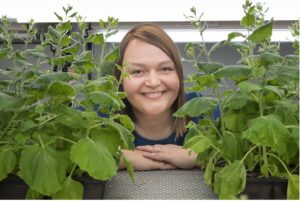
Photosynthesis forms the basis of plant development and productivity. Understanding molecular mechanisms of this process to genetically re-design plants for more efficient carbon assimilation is the key to sustaining the required increases in crop yields in the face of climate change. I have been working on identifying and testing biotechnological approaches to improve photosynthesis which resulted in discovering genetic modifications that have a potential to increase crop yield. I found that C4 photosynthesis, a special type of photosynthesis that many important crops like maize and sorghum have, is limited by a supply of ATP and NADPH from the electron transport reactions. I showed that increasing the rate of chloroplast electron transport improved CO2assimilation rates and yield in model and crop C4 species in controlled conditions. I have also been involved in the C4 Rice project, an international consortium funded by the Gates Foundation to engineer C4photosynthesis into a C3 crop rice to benefit smallholder farmers. My work in the project resulted in creating a metabolic prototype of C4 rice, a steppingstone towards the development of up to 50% higher yielding rice varieties with superior water use efficiency.
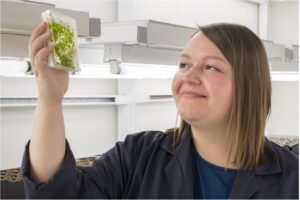
In my Plant Energy and Biotechnology Research group at Monash University, I look forward to continuing developing new approaches for creating more energy-efficient plants better suited for future climates and making a positive impact to Australian food and energy security.
Events
Please login and check your ASPS membership is up to date. Encourage your colleagues and students to join ASPS.Tweet to @asps_ozplants your news and upcoming events and follow to keep up to date.
Recent Posts
Tags
Archives
- June 2025
- May 2025
- April 2025
- March 2025
- February 2025
- January 2025
- December 2024
- November 2024
- October 2024
- September 2024
- August 2024
- July 2024
- June 2024
- May 2024
- April 2024
- February 2024
- January 2024
- November 2023
- October 2023
- September 2023
- August 2023
- July 2023
- June 2023
- May 2023
- April 2023
- March 2023
- February 2023
- December 2022
- November 2022
- October 2022
- September 2022
- August 2022
- July 2022
- June 2022
- May 2022
- April 2022
- March 2022
- February 2022
- January 2022
- December 2021
- November 2021
- October 2021
- September 2021
- August 2021
- July 2021
- June 2021
- April 2021
- March 2021
- February 2021
- January 2021
- December 2020
- November 2020
- October 2020
- September 2020
- August 2020
- July 2020
- June 2020
- May 2020
- April 2020
- March 2020
- February 2020
- January 2020
- December 2019
- November 2019
- October 2019
- September 2019
- August 2019
- July 2019
- June 2019
- May 2019
- April 2019
- March 2019
- February 2019
- January 2019
- December 2018
- November 2018
- October 2018
- September 2018
- August 2018
- July 2018
- June 2018
- May 2018
- April 2018
- March 2018
- February 2018
- January 2018
- December 2017
- November 2017
- October 2017
- September 2017
- August 2017
- July 2017
- June 2017
- May 2017
- April 2017
- March 2017
- February 2017
- January 2017
- December 2016
- November 2016
- October 2016
- September 2016
- August 2016
- July 2016
- June 2016
- May 2016
- April 2016
- March 2016
- February 2016
- January 2016
- December 2015
- November 2015
- October 2015
- September 2015
- August 2015
- July 2015
- June 2015
- May 2015
- April 2015
- March 2015
- February 2015
- January 2015
- December 2014
- November 2014
- October 2014
- September 2014
- August 2014
- July 2014
- June 2014
Copyright 2017 Australian Society of Plant Scientists Disclaimer & Privacy
Website by Michael Major Media

